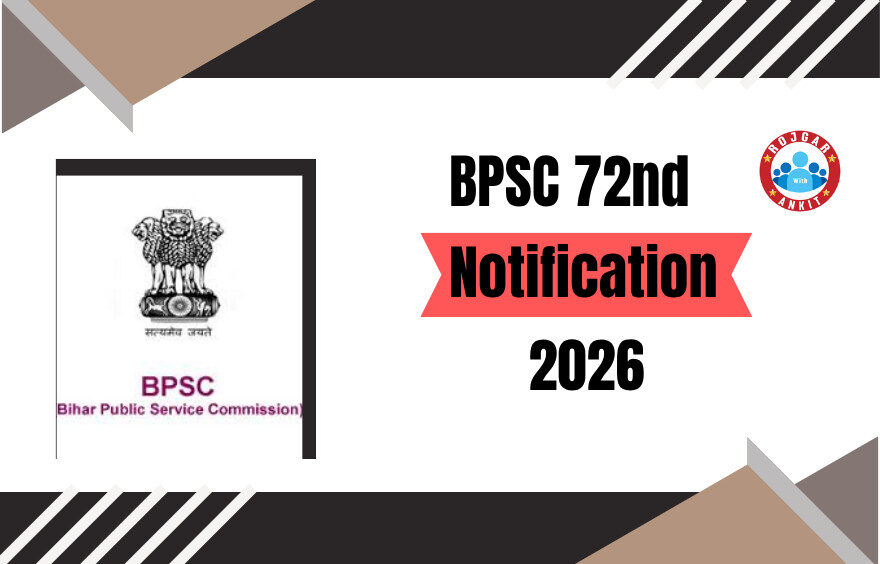Important Dates
| Event | Expected Dates (Based on 71st CCE) |
| Online Application Start Date | 02.06.2025 |
| Online Application End Date | 30.06.2025 |
| Preliminary Exam Date | 13-09-2025 (according to the new calender) |
| Main Exam Date | March/April 2026 (according to the new calender) |
Eligibility Criteria
Educational Qualification
- For CCE Posts: You just need a Bachelor's Degree (Graduation) or an equivalent degree from any recognized university.
- For Financial Administrative Officer: For this specific post, you'll need a Bachelor's Degree in one of these subjects: Commerce, Economics, Mathematics, or Statistics.
Age Limit
Your age is typically calculated as of August 1, 2025 (though this date might change for the 72nd CCE).
- Minimum Age: This is either 21 or 22, depending on the job.
- 21 Years for posts like Revenue Officer, Block Panchayat Raj Officer, etc.
- 22 Years for posts like Sub Divisional Officer, Labor Superintendent, etc.
- Maximum Age:
- 37 years for General (Male).
- 40 years for General (Female), Backward Class (BC), and Extremely Backward Class (EBC) (Male & Female).
- 42 years for Scheduled Caste (SC) and Scheduled Tribe (ST) (Male & Female).
Age Relaxation (Special Categories):
- Persons with Benchmark Disability (PwBD): You get a relaxation of 10 years in the maximum age limit.
- Bihar Government Employees: You get a 5-year relaxation, but you're limited to a total of 5 attempts in BPSC exams.
- Ex-Servicemen: You get a relaxation of 3 years plus the number of years you served in the military (as long as your current age isn't over 57).
Application Fee and Process
Application Fee
The fees have to be paid online.
- General Candidates: ₹600
- SC / ST (Bihar Residents only): ₹150
- All-Female Candidates (Bihar Residents only): ₹150
- PwBD Candidates (40% or more disability): ₹150
- All Other Candidates (from outside Bihar): ₹600
- Biometric Fee: There's an extra ₹200 fee for each exam (CCE and FAO). But if you enter your Aadhaar Number in the application form, you don't have to pay this biometric fee.
How to Apply (Online Process)
You have to apply online through the official BPSC portal. Here's a step-by-step breakdown:
- First you'll need to complete the OTR process on the BPSC website (https://bpsconline.bihar.gov.in). You'll need a valid E-mail ID and Mobile Number. Keep these safe and active until the final results are out.
- Use the password you created to log in to your dashboard.
- Carefully fill in all your details like Personal Information, Address, and Educational Qualification.
- You'll need to upload scanned copies of all your required documents (like your degree, caste certificate, etc.) as PDFs (max 100 KB size).
- You must capture a live photo of yourself using a webcam. Make sure you're in a well-lit room with a white or light-colored background.
- Upload scanned images of your signature in both English and Hindi (max 15 KB size, .jpg/jpeg format).
- Pay your application fee online.
- Don't close the window yet. After paying, download the final application form and print two copies. Keep this hard copy safe. You will need to show it during document verification.
Salary
The salary structure of BPSC officers is determined according to the 7th Pay Commission and varies based on the pay level of the post. These levels reflect the hierarchy and responsibilities associated with each position.
- Level-9 Posts: These include high-ranking administrative roles such as Sub-Divisional Officer (SDO) and Financial Administrative Officer, offering a salary range of ₹53,100 – ₹1,67,800 per month along with multiple benefits.
- Level-7 Posts: Mid-level positions like Revenue Officer, Block Panchayat Raj Officer, and Cooperative Extension Officer fall under this category, with a pay scale of ₹44,900 – ₹1,42,400 per month.
- Level-6 Posts: Positions such as Block Minority Welfare Officer come under this level, with a salary range of ₹35,400 – ₹1,12,400 per month.
In addition to the basic pay, BPSC officers receive Dearness Allowance (DA), House Rent Allowance (HRA), Travel Allowance (TA), Medical Allowance, and other government perks. The total in-hand salary significantly increases with experience, promotions, and periodic pay revisions, making BPSC jobs among the most respected and rewarding in the state.
Selection Process
The BPSC CCE is a three-stage journey.
- Preliminary Exam: This is an objective (MCQ) test. Think of it as a screening round, its marks don't get added to your final score, but you must pass it to get to the next stage.
- Main (Written) Exam: This is a subjective (written) exam, and your score here is what really counts for the final merit list.
- Personality Test (Interview): If you clear the Main exam, you'll be called for the interview, which is worth 120 marks.
Your Final Merit List (what decides if you get the job) is prepared based on your total marks from the Main Exam (900 marks) and the Interview (120 marks), adding up to a total of 1020 marks.

